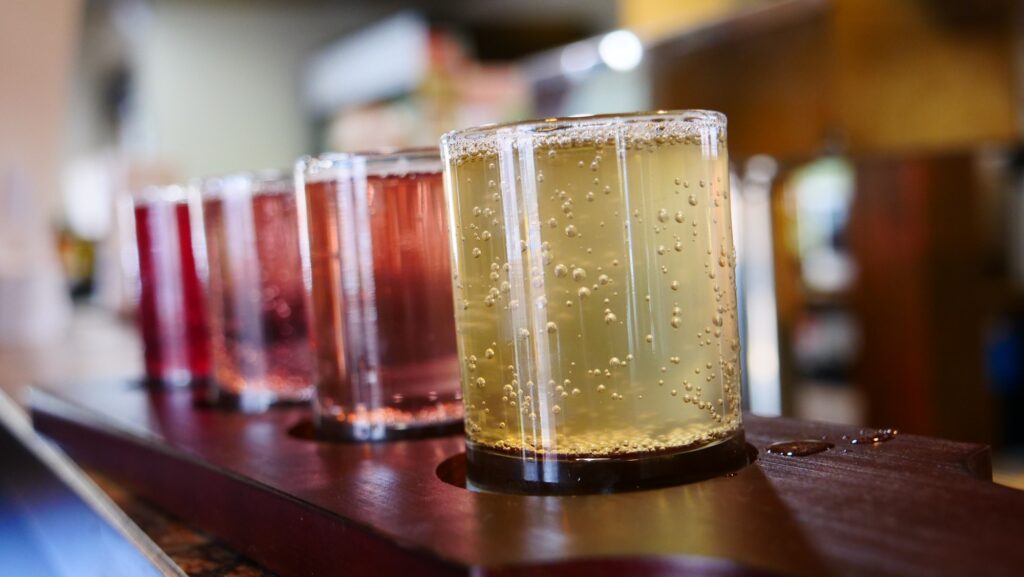
Are you a health-conscious consumer curious about the buzz surrounding kombucha? Or perhaps you’re a caffeine-sensitive individual wondering if this trendy fermented tea is a safe option for you? Look no further! We’re diving deep into the world of kombucha and its relationship with caffeine.
Kombucha vs. Traditional Caffeinated Beverages: A Comparison
Let’s start by comparing the caffeine content of kombucha to other popular beverages:
| Beverage (8 oz serving)Caffeine Content | |
| Brewed Coffee | 95-200 mg |
| Black Tea | 14-70 mg |
| Green Tea | 24-45 mg |
| Kombucha (typical) | 10-25 mg |
| Decaf Kombucha | 0-5 mg |
As you can see, kombucha generally contains less caffeine than coffee or traditional teas, making it an excellent option for those looking to reduce their caffeine intake without giving it up entirely.
The Health Effects: Kombucha’s Secret Weapons
While the caffeine content in kombucha is lower, it packs a punch when it comes to health benefits:
- Probiotics: Kombucha is teeming with beneficial bacteria that support gut health and boost immunity.
- Antioxidants: The fermentation process enhances the tea’s antioxidant properties, helping to fight free radicals in your body.
- B Vitamins: Kombucha is a natural source of B vitamins, which can help improve energy levels without the caffeine jitters.
Brewing Process: The Caffeine Conundrum
The brewing process of kombucha plays a crucial role in its final caffeine content. Here’s what you need to know:
- Tea Base: The type of tea used (black, green, or white) affects the initial caffeine level.
- Fermentation Time: Longer fermentation can slightly reduce caffeine content.
- Sugar Content: Higher sugar levels can lead to more fermentation and potentially lower caffeine.
Pro Tip: If you’re brewing at home, experiment with different tea bases and fermentation times to find your perfect balance of flavor and caffeine content!
Decaf Kombucha: Yes, It’s a Thing!
For those who are ultra-sensitive to caffeine or simply prefer to avoid it altogether, decaf kombucha options are available:
- Store-bought Decaf: Many brands now offer decaffeinated kombucha varieties.
- Herbal Tea Base: Try brewing kombucha with caffeine-free herbal teas like rooibos or chamomile.
- Water Kefir: A probiotic-rich, naturally caffeine-free alternative to traditional kombucha.
Key Takeaways
- Kombucha typically contains less caffeine than coffee or traditional teas.
- The health benefits of kombucha extend beyond its caffeine content.
- The brewing process impacts the final caffeine levels in kombucha.
- Decaf options are available for those looking to avoid caffeine entirely.
Ready to explore the world of kombucha? Whether you’re looking for a gentle caffeine boost or a probiotic-rich beverage, there’s a kombucha out there for you. Cheers to your health! 🍵






